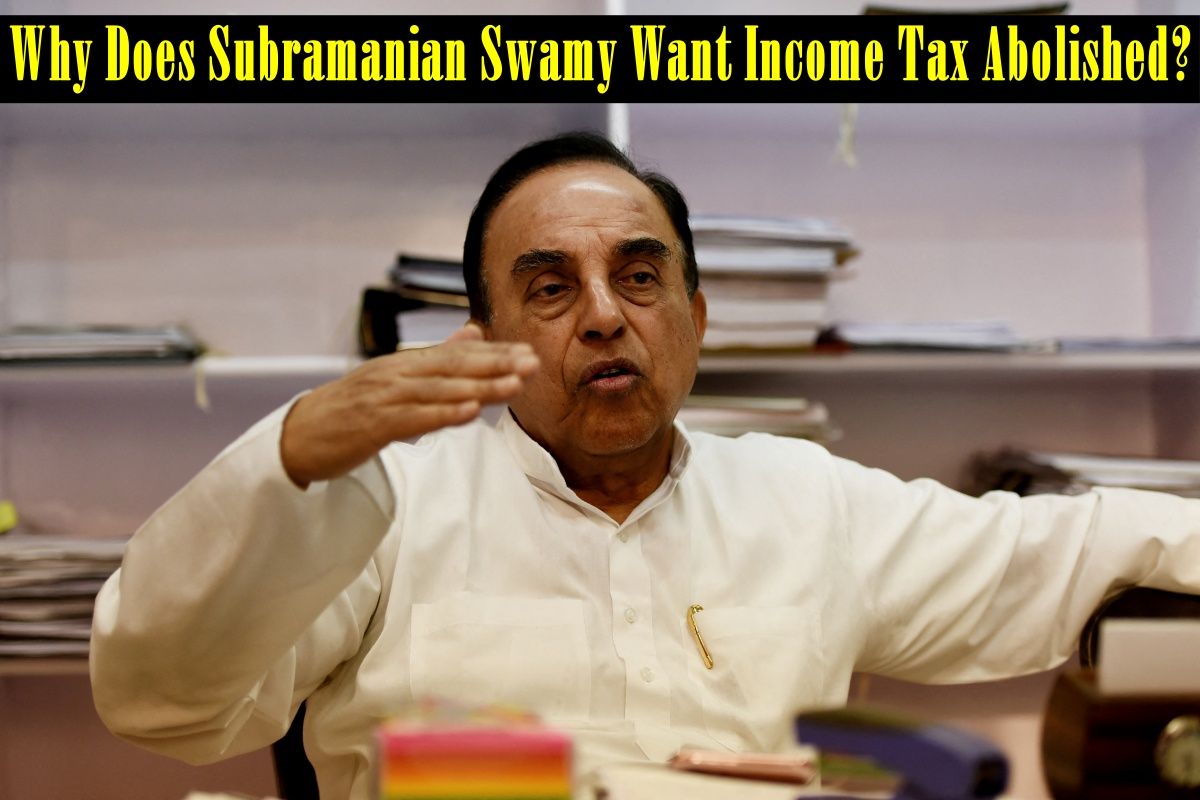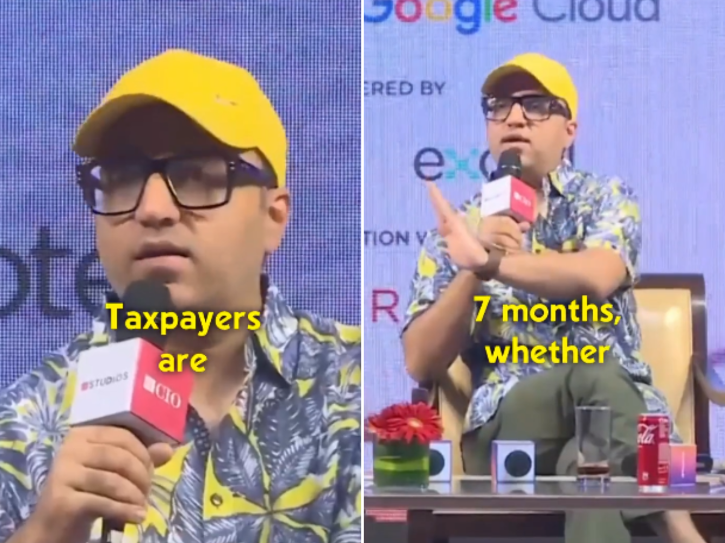Abolishion Of Income Tax In India: The Need Of The Hour To Honour The Common Man Who Are Eventually The Wheels Of The Nation.
Several countries rely substantially on personal income tax to fund their budgets. In India, however, this is not the case. Personal income taxes account for less than 15% of India's budget. If the government can cut 15% of its spending, it can simply repeal the income tax with no effect on the budget. This decreased reliance on personal income tax makes its abolition a very serious prospect.

The income tax we pay today was first introduced in our country in 1860 by the British. Ironically, it is no hidden fact that British governance at that time had exploited the tax system to wash away great chunks of INR into their country and drain the Indian population. Numerous articles on the Internet say how the British drew away $45 trillion from India from 1765 to 1938 in the name of trade and taxes and then lied about it.
Okay, the British introduced this tax system and looted India. So, ironically enough, though, this tax system should now be abolished, or at least eased so that none of the Indians feels that they are looted from the governance. But this is not happening at all. Still, we are paying huge taxes to our corrupt systems, who are still looting the common man.
And if you think it is me who said this, then read these words from prominent personalities who openly pointed against the taxation system of India.
Last year, when the budget was around the corner, and Common people were watching to see revisions in the income tax slabs, Subramanian Swamy had a suggestion for the government. The prominent economist has stated that he wants the government to abolish the income tax. This isn’t the first time he’s indicated anything like this.
He has been an outspoken advocate of abolishing India’s income tax. When asked what he would do if he were India’s Finance Minister, Mr Swamy said he would have abolished income tax for everyone on April 1. He also suggested that banks raise fixed deposit interest rates from 6% to 9%, which would help the Indian economy regain lost ground.
If you want to learn more, search the following on the net, and you will get great insights as to why there should be no income tax and how it will help the common man and the national economy.
- Budget 2022: Here’s what Subramanian Swamy would have done if he were FM
- Why Does Subramanian Swamy Want Income Tax To Be Abolished? Find Out Here

Again, one famous name in today’s generation is Shark Mr. Ashneer Grover, who openly said that paying taxes in India is a punishment. Ashneer Grover blasted the new government announcement after it was announced in the scorching heat of May that an increased Tax Collected at Source (TCS) rate of 20% will be applied to international credit card usage. Ashneer Grover feels India’s tax system is skewed, with the government taking 30-40% of the income without providing meaningful advantages.
In several viral videos, the entrepreneur and former Shark Tank India judge argued that paying taxes in India is like a punishment. The former BharatPe MD mocked the government’s legislation, pointing out the difference between political donations receiving tax exemption and the new rule focusing on tax deduction for credit card use.
It is no new why the salaried people are forced to pay taxes, whereas the politicians, in a certain way, are exempted from these hefty taxes. Take the example of these states, where The state exchequer has been bearing the significant burden of tax of the serving chief ministers and their council of ministers in five states, apart from UP. These states are Madhya Pradesh, Chhattisgarh, Haryana, Uttarakhand and Himachal Pradesh.
We complain about tax evasion but think once about why the common man will not find ways to evade Tax if they knows that their hard-earned money is snatched by some ministers even if they are earning way more than them. Search the following for insight into the wise views of the famous Shark on exhausting the Indian Taxation System.

Advantages of Income Tax Elimination.
Assume the union budget eliminates the income tax. What are the benefits of a state with no income tax? First, more money is in people’s hands. When people have extra money, they naturally desire to spend it rather than save it. When a significant segment of the population spends more, it results in more substantial income for a part of the remaining population. Assume a monthly salary of 50,000 rupees. According to the 2021 tax regime, the person pays an income tax of 5,000 rupees. If income taxes are eliminated, such citizens will spend more, increasing money circulation in the economy.
Second, there is the prospect of bringing black money into the economy. According to the NCAER, illicit wealth in India is between 384 billion and 490 billion dollars. This amounts to almost 14% of India’s GDP. Many contend that a sizable portion of this money was hidden due to high tax rates, and thus, squashing income tax alone made more financial sense. Income tax abolition might legalise this money, enhancing money circulation throughout the economy. Undoubtedly, people find ways to evade Tax because they are frustrated with such high tax rates. If they don’t have the frustration of losing their hard-earned money in the form of Tax, eventually, the intent of tax evasion will go down.
India is also experiencing asset price inflation. Housing and other assets, such as gold, have skyrocketed in value. This is due to people attempting to evade income taxes by investing the money in other assets. Because gold and real estate are these assets, their values are greatly inflated, and the average person cannot afford them. As a result, eliminating the income tax will benefit both the government and the common man.

Third can be the reduction in Subsidies. Currently, the Indian government provides numerous subsidies to the lower middle-class populace. Subsidies include those for cooking gas, electricity, and other utilities. Farmers also receive loan forgiveness and fertiliser subsidies regularly. As a result, the government spends more on subsidies than it gets on personal income tax receipts. Subsidies should also be reduced as a remedy to this problem. Decreasing subsidies without also lowering income taxes would be politically controversial. If subsidies are reduced concurrently with income taxes, the government may wind up saving money rather than losing money.
Is the abolition of income tax a possibility or just a theoretical narrative?
Taxation of the Middle Class.
To begin, it should be noted that tax compliance in India is relatively poor. The exceptionally rich do not pay taxes because they use loopholes and find ways to conceal their money, or if they can’t, they renounce their Indian citizenship and settle for nations that have ease in taxes. The vast majority are poor and, hence, do not have to pay taxes. Only middle-class salaried people in India pay taxes. This is also the population that is propelling India’s progress. The average taxpayer is educated, young, lives in a city, and enjoys conspicuous consumption. The Indian government just harms the economy by taking money away from these folks.
Low Tax Base.
It should also be noted that fewer than 3% of India’s overall population pays income tax. Approximately half of those who file tax returns declare zero taxes. Only a small minority of the very wealthy pay these taxes. In a country of 1.25 billion people, just 400 thousand people pay a significant amount of income tax.
Furthermore, several countries rely substantially on personal income tax to fund their budgets. In India, however, this is not the case. Personal income taxes account for less than 15% of India’s budget. If the government can cut 15% of its spending, it can simply repeal the income tax with no effect on the budget. This decreased reliance on personal income tax makes its abolition a very serious prospect.
Now, a reduction in this 15% can easily be done if the extravagant packages of ministers are cut down. Yeah, that’s the common man’s money that they are enjoying. Leave that; recall the Agniveer Scheme, where there is no pension for the agniveers who can sacrifice their lives for the nation, while you will get a full pension even if you are elected for one day only. That’s ridiculous. When the government curd their pockets, they will see that the nation’s attire is on a better growth.
Reduced Administrative Costs.
As previously stated, the amount of money received from this entire charade is relatively small. The government doesn’t make a lion’s share of the revenue from income taxes. However, they do pay a lion’s share of the money obtained in the form of expenditures.
The Indian government has a big bureaucracy in charge of enforcing these tax regulations. Everybody is required to file a tax return. The paperwork consumes a significant amount of time and resources. Furthermore, because compliance is so low, the government has hired a large number of people to crack down on noncompliance and conduct raids. Even after engaging these tax hitmen, the Indian state has not been able to significantly boost its tax income due to corruption and bribery.
As a result, if the personal Tax is eliminated, the government will no longer need to hire a huge number of individuals to handle paperwork. As a result, even if income would fall by 15%, expenditure will fall dramatically! This, once again, is what makes removing income tax an achievable concept in an economy the size of India.

Conclusion.
Income tax abolition is a hotly disputed and contentious issue in the country today. Personal income tax collection accounts for roughly one-fourth of the central government’s revenue. While some economists think that the loss of revenue for the government would be damaging, others believe that more money in people’s hands will result in economic growth.
To examine the viability of such a radical transformation, policymakers in India must conduct considerable research, contact experts, and conduct thorough impact assessments. A balanced approach that handles potential disadvantages while promoting economic growth and fairness may be the key to assessing whether eliminating income tax in India is a viable and useful concept for the country’s future.
At the end of the essay, it will be highly beneficial to WE, THE PEOPLE OF INDIA, will be in a better position to contribute towards the economic development of the nation.






